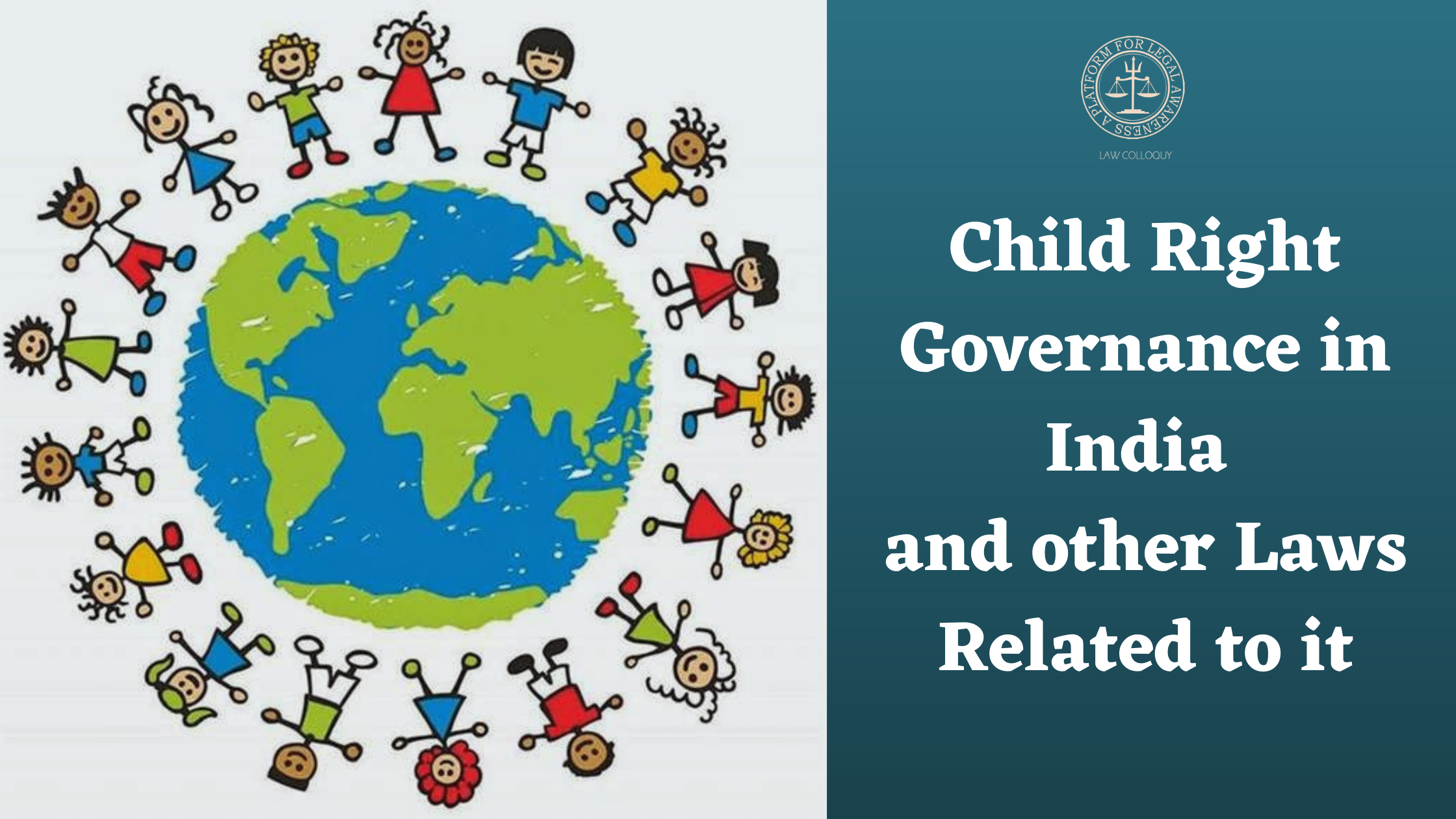DIFFERENCE BETWEEN MUNICIPAL AND INTERNATIONAL LAW
As in other jurisdictions, there is a significant distinction between municipal and international law in India. Both types of law operate within different realms and serve distinct functions. This blog discusses detailed exploration of the differences between municipal and international law in the Indian context.
The Long Arm of Justice: Historical and Contemporary Approaches to War Crimes Prosecution
War crimes are one of the most heinous acts in human history and are a clear violation of the standards of humanity even amid warfare. These gross and systematic human rights violations that include murder, torture, and the use of force against civilians cannot be ignored or go unpunished. This blog analyses the nature of war crimes and the role of their study in fostering a more just and humane global society.
Child Right Governance in India and other Laws Related to it
Perhaps the most well-known definition of ‘global governance’, James Rosenau designates it as ‘organisations of rubrics at all stages of hominoid action – from the domestic to the worldwide organisation.’ Today the perception of authority has wedged the attention of researchers in fields like political science, economics, business studies, and global relations to analyse an inclusive variety of marvels such as school life, worldwide policy-making, global organisations, public health, monetary dealings, street gangs or traffic rules. Children and youth are in many circumstances obtainable as ruled by others – parents, teachers, social services, religious establishments, or out of control. For youthful scholars, though, the opposite has been basic in the influence of the field of juvenile studies over the last decades. The intervention of children and young people certainly also impact the schemes of guidelines and governance that border them. They are thus as much theme to these systems as they can be energetic and shapers of them, in many cases organised with or in equivalent to the adults adjacent them. Contempt this heading of children as being both marks and shapers of governance, though, with some exceptions, the methodical study of the governance of children and youth have established little consideration within childhood studies as well as to the examination of how child rights are assumed to form in national and multinational politics, law and society.
RIGHT TO INFORMATION WITH SPECIAL EMPHASIS ON RIGHT TO PRIVACY IN INDIA
“Information is the currency of democracy,” is very rightly said by Thomas Jefferson. Right to Information is the foundation of a democratic government. In India, democracy vests with the people of India, so we have a right to know. The Right to Information Act, 2005 was formulated which replaced the Freedom of Information Act, 2002. Privacy and RTI are related to each other. The government is accountable to the people in open governance system. In modern era, the people are more aware about their rights as well as their privacy. India’s legal system is formulating various statutes, acts and legislations to make the government accountable and transparent but the concept of privacy runs parallel to RTI. The law provides us the right to access the information held by government authorities on the other hand, the right to privacy ensures the confidentiality to access, collect and usage of personal information about them that is held by governments and private bodies. These two laws are contradictory and complicated.
Distinction between Fundamental Rights and Human Rights
Rights are the reasonable privileges of people. These claims are ensured by law. According to law, rights are considered as the sensible case of the people which are acknowledged by the general public and affirmed by statute. It can be fundamental rights or human rights. The rights which are principal to the life of the citizens of a nation are known as fundamental rights. The primary contrast between fundamental rights and human rights is that the fundamental rights are particular to a specific nation, while human rights have overall acknowledgment. Fundamental Rights and Human Rights are essential for the presence and improvement of people. It makes a superior domain and better living conditions for individuals, and in addition, they, protect their nobility. Human rights and fundamental rights are key rules that remain at the premise of any fair and equivalent society.
75 Years of the United Nations: How it all started
24th October 2020 marks the 75th anniversary of the United Nations. To commemorate the milestone achieved by this organization which has more legitimacy, convening power, and normative impact than any other organization, this blog explains how and why the United Nations was founded.
TOP 10 LEGAL HEADLINES OF THE WEEK 14 Oct 2020
Special Leave Petition Against HC Order Rejecting Review Petition Cannot Be Entertained When Main Judgment is Not Challenged: States SC
THE TRUTH ABOUT RELIGION AND FGM
Female Genital Mutilation (often referred to as FGM) is a destructive operation
Probation of Offenders Act 1958: An Overview
An accused person should be given a chance of reformation that he would lose if he is incarcerated in prison and associates with hardened criminals.
Introduction of The Consumer Protection Act, 2019
It is said that consumer is the king of the market and to uphold this, the consumer protection act, 2019 has come into force from 20th July 2020 to give more power to the consumers and to protect so that in no way the consumer is being harassed by the dominant position of the trader and manufacturer.
Difference between Kidnapping and Abduction
The word “kidnapping” has been derived from the word ‘kid’ meaning child and ‘napping’ to steal. Thus the word literally means “child stealing”. However, under the Indian Penal Code it is not confined to child stealing. It has been given broader implication, i.e., carrying away of a human being against his/her consent, or the person accused removes the person from his/her lawful guardianship.
‘Evaluation of the working of Reformative theory in India’
Reformative theory of punishment is widely being accepted and implemented theories of punishment around the world. It is backed by the ideology that prisons should be converted into reformed homes. The motives behind the offences must be examined; there should be made a way so that the offender could go back to mainstream society.
Theories of Punishment
With the change in the social structure, society has witnessed various punishment theories and the radical changes that they have undergone from the traditional to the modern level and the crucial problems relating to them.

.png)
.png)



